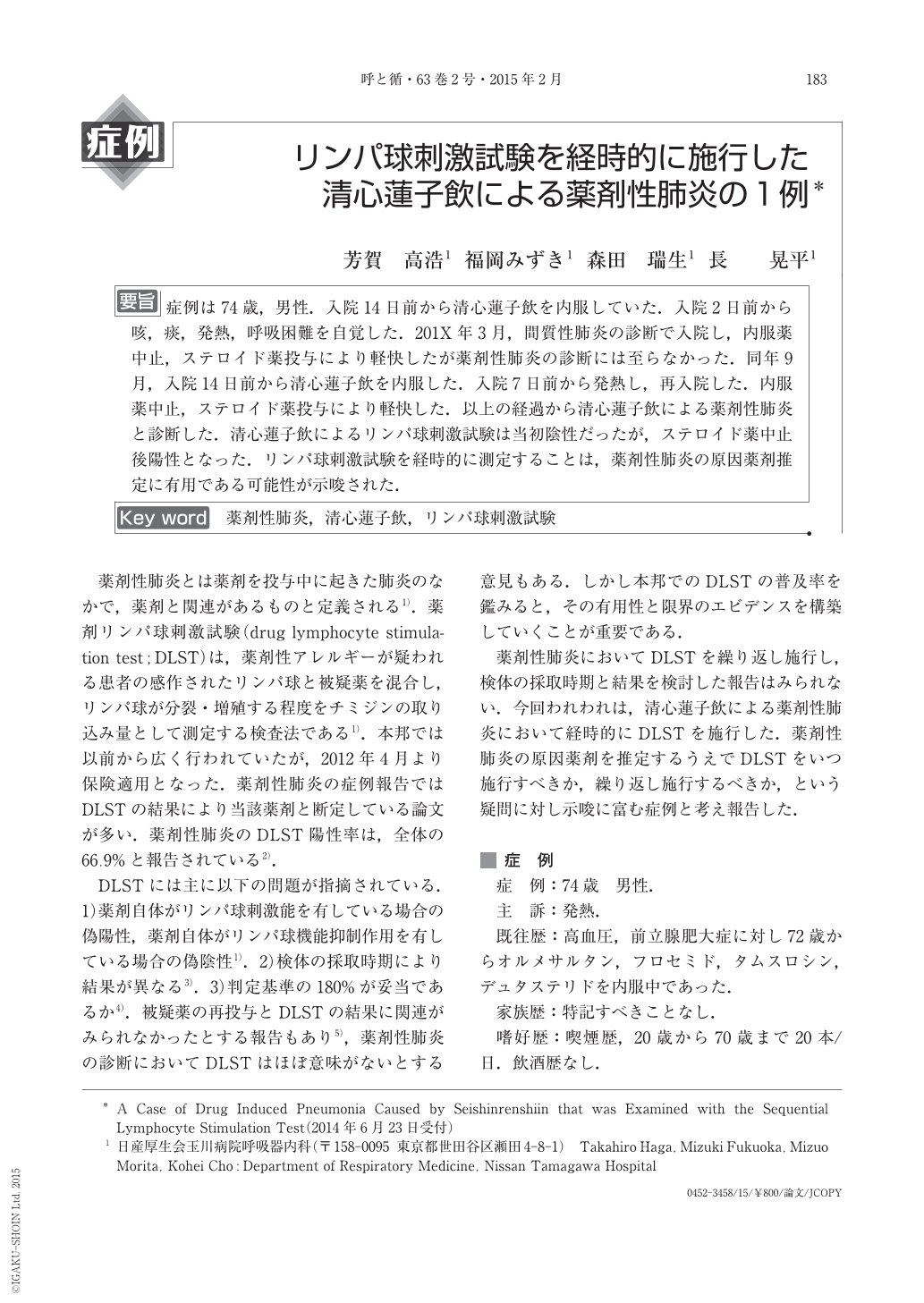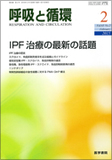Japanese
English
- 有料閲覧
- Abstract 文献概要
- 1ページ目 Look Inside
- 参考文献 Reference
要旨 症例は74歳,男性.入院14日前から清心蓮子飲を内服していた.入院2日前から咳,痰,発熱,呼吸困難を自覚した.201X年3月,間質性肺炎の診断で入院し,内服薬中止,ステロイド薬投与により軽快したが薬剤性肺炎の診断には至らなかった.同年9月,入院14日前から清心蓮子飲を内服した.入院7日前から発熱し,再入院した.内服薬中止,ステロイド薬投与により軽快した.以上の経過から清心蓮子飲による薬剤性肺炎と診断した.清心蓮子飲によるリンパ球刺激試験は当初陰性だったが,ステロイド薬中止後陽性となった.リンパ球刺激試験を経時的に測定することは,薬剤性肺炎の原因薬剤推定に有用である可能性が示唆された.
The patient was 74-year-old male. He had started to take Seishinrenshiin 14 days before admission. Cough, sputum production, fever and dyspnea had developed two days before admission. He had been admitted for interstitial pneumonia in March 201X. He recovered following the cessation of oral medication and the administration of a steroid drug. He started to take Seinshinrenshiin again 14 days before re-admission. A fever developed seven days before the re-admission. He was re-admitted with interstitial pneumonia. He again recovered with cessation of the oral medication and the administration of a steroid drug. The diagnosis of drug induced pneumonia by Seinshinrenshiin was made based on the observed clinical courses. Although the lymphocyte stimulation test for Seishinrenshiin was negative during his re-admission, it became positive after the cessation of the steroid drug. Sequential lymphocyte stimulation tests may therefore be useful for identifying the causative drug in patients diagnosed with drug-induced pneumonia.

Copyright © 2015, Igaku-Shoin Ltd. All rights reserved.


